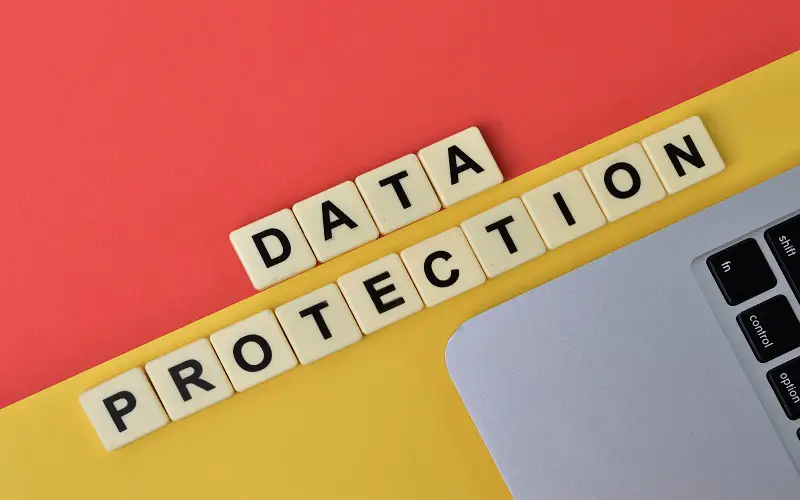In the digital age, protecting data is a critical concern for companies of all sizes. Big companies have a lot more to lose if their data falls into the wrong hands, so it’s no surprise that many of them have taken extra steps to protect their information, utilizing techniques such as data encryption, data masking, data mapping for GDPR, cloud-based tools, etc.
In this article, we’ll look at some of the ways that big companies protect their data.
Understanding the Lifecycle of a Company Data
Understanding the lifecycle of your company data is the first step to ensuring data is protected. This includes everything from when it is created and stored to how it is used, shared, and disposed of. Using data mapping tools to gain a thorough understanding of where data resides can help you determine what steps need to be taken to protect it. Additionally, knowing who should have access to it helps you ensure that only authorized individuals can view it.
Educate Employees About Data Security
Large companies are made up of a lot of different individuals, each with their own role in the organization. It is important to educate employees about data security protocols and enable them to understand their responsibility for protecting company information. This can include conducting regular training sessions on how to recognize potential risks and maintain data security, as well as implementing policies that outline the consequences of data security breaches.
Develop Security Protocols
Creating security protocols is an essential step in protecting company information. This can include conducting regular training sessions on how to recognize potential risks and maintain data security, as well as implementing policies that regulate employee access to data and devices. Companies should also have disaster recovery procedures in place in the event of a security breach, as well as plans for responding to any incidents that occur.
Protect Network Infrastructure
Networks are fundamental components of an organization’s IT infrastructure and thus require special attention when it comes to protection. Companies should invest in reliable firewalls, routers, and other network security measures that can prevent unauthorized access or malicious attacks. It is also important to regularly update these systems with the latest security patches to protect against vulnerabilities. Additionally, companies should avoid using passwords as their only method of authentication and instead use two-factor authentication or biometric scans for added protection.
Data Protection Policies
Another way in which big companies protect their data is by implementing strong data protection policies. These policies outline the rules and regulations that must be followed in terms of how data should be stored, accessed, and used. They help to ensure that all company employees are aware of the measures being taken to protect any sensitive information and prevent unauthorized individuals from accessing it. Data protection policies also allow companies to determine what level of security is needed for any given data set and to create the necessary protocols for its usage.
Popular Techniques Utilized by Big Companies for Data Protection
Big companies all over the world use a variety of sophisticated data protection techniques to secure their vital information. We explore some of these popular methods here:
Utilize Advanced Security Software
Advanced security software can help large companies protect their data by monitoring networks and preventing unauthorized access or malicious attacks. These software products often include features such as encryption, firewalls, intrusion detection systems, and antivirus protection. When selecting security software, companies should look for products that are user-friendly, provide regular updates and patching, and have strong authentication measures.
Data Encryption
Data encryption is one of the most common security measures that big companies take to keep their data safe. By encrypting their data, they can ensure that only authorized personnel are able to access and use the information. By scrambling the data with complex algorithms, only authorized personnel can access it, and even if someone were to get ahold of the files without permission, they would be unable to decipher or exploit them. This technique is an essential defense measure for big businesses that wish to protect sensitive material.
Data Backups
Data backups are essential for big companies, as they ensure that their information is not lost in the event of a disaster or system failure. By creating regular backups of their data, companies are able to quickly recover from any losses and keep their operations running smoothly. Backups can be stored both on-site and off-site so that it is always accessible in the event of an emergency.
Data Masking
Data masking is a technique used by companies to reduce the risk of data breaches. This involves obscuring sensitive information, such as names, addresses, and phone numbers, so that it can’t be easily accessed or stolen. By making sure that only authorized personnel have access to this information, companies can protect their customers from potential identity theft or fraud.
Conclusion
Big companies have a responsibility to ensure that their data is kept secure and protected. By taking steps such as encryption, backups, and data masking, companies can make sure that their customer information remains safe from hackers or other malicious actors. These measures are essential for maintaining trust with customers and preventing any potential losses from occurring. Ultimately, by taking the necessary precautions, big companies can guarantee the safety of their data and ensure that it remains secure. In order to stay ahead of the curve, it is essential for companies to invest in the latest security technologies and best practices. This will enable them to protect their information from potential breaches and reduce any liability associated with a breach.




